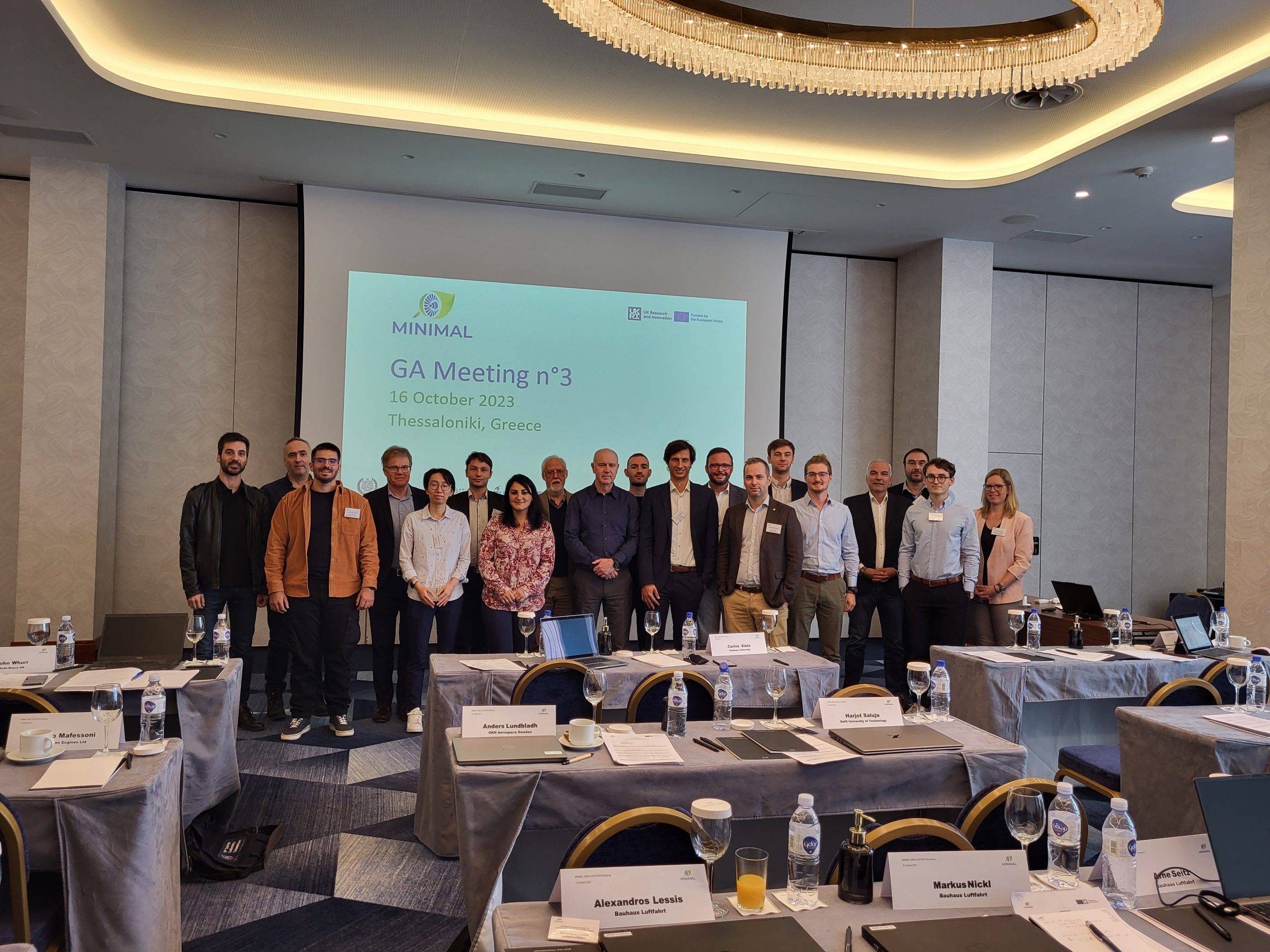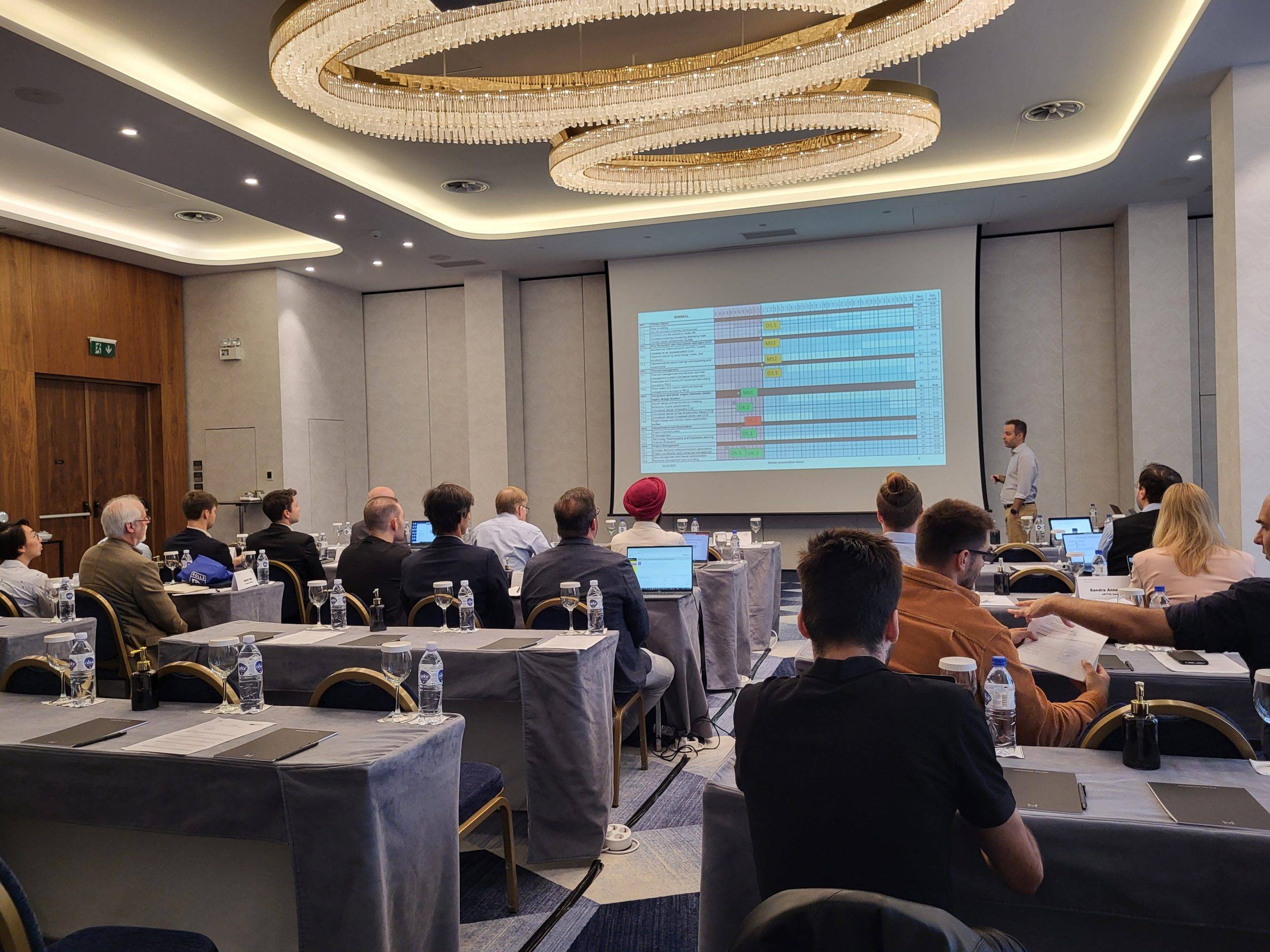3rd General Assembly Meeting: Reshaping the Aviation Industry
16.10.2023
MINIMAL Project’s 3rd general assembly meeting and a workshop for work packages 3 and 4 were hosted by AUTH in Thessaloniki, Greece on 16 October 2023.
Work Package Highlights
Project coordinator Asso. Prof. Carlos Xisto from Chalmers University, Sweden, kicked off the meeting by providing an insightful overview of the current project status, outlining the meeting’s objectives, and detailing the agenda. The focus was then shifted to the work package presentations, each shedding light on significant developments within the project.
WP1: Climate Impact – Harjot Saluja (TU Delft)
Significant strides have been made in climate impact assessment, including the development of the Climate Response Function (CRF). Lessons learned from short and long flight routes emphasize the importance of CRFs in emissions analysis. MINIMAL scenarios are established, fleet allocation tasks completed, and initial steps taken in contrail modelling. Emphasis is placed on addressing uncertainties in NOx calculations, paving the way for future discussions and workshops.
WP2: NOx Reduction with Free-Piston Hydrogen HCCI – Andrew Rolt (Cranfield University)
Active tasks focus on test rig parameters and real-time position measurements. Progress is evident in understanding the requirements for the efficient operation of an opposed free piston combustion system. Collaboration with key partners is mainly scheduled for the second half of the project.
WP3: Thermal Management – Carlos Xisto (Chalmers University)
Ongoing efforts are being made in compiling requirements and modelling assumptions. Challenges and lessons learned include verifying H2 piston engine models and addressing NOx emissions dependencies. The focus is on the down-selection of intercooling concepts and setting up models for piston system cooling.
WP4: Integration and Whole Engine Minimum Climate Impact Design Studies – Arne Seitz (Bauhaus Luftfahrt)
Reference aircraft definitions are widely completed, and a CCE investigation matrix is established. Promising strategies for interfacing WP1-WP4 for climate impact assessment are in progress. Emphasis is placed on the need for a consistent approach for reusable and comparable CCE comparisons.
WP5: Dissemination, Communication, and Exploitation – Anna Yenokyan (ARTTIC)
Regular communication updates, including initiatives like #MINIMALMonday and coordination with cluster projects, are underway. Analytics for MINIMAL’s social media accounts is provided, with planning for industry workshops with a focus on contrail formation and NOx modelling.
WP6: Project Management – Anna Yenokyan (ARTTIC)
The project timeline is analyzed, and an overview of budget consumption and upcoming events is provided. Discussions on the format and location of future General Assembly Meetings are ongoing.


